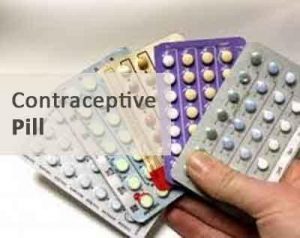- Home
- Editorial
- News
- Practice Guidelines
- Anesthesiology Guidelines
- Cancer Guidelines
- Cardiac Sciences Guidelines
- Critical Care Guidelines
- Dentistry Guidelines
- Dermatology Guidelines
- Diabetes and Endo Guidelines
- Diagnostics Guidelines
- ENT Guidelines
- Featured Practice Guidelines
- Gastroenterology Guidelines
- Geriatrics Guidelines
- Medicine Guidelines
- Nephrology Guidelines
- Neurosciences Guidelines
- Obs and Gynae Guidelines
- Ophthalmology Guidelines
- Orthopaedics Guidelines
- Paediatrics Guidelines
- Psychiatry Guidelines
- Pulmonology Guidelines
- Radiology Guidelines
- Surgery Guidelines
- Urology Guidelines
Prospective birth control pill for men

Women have many options for oral contraceptives that are safe, effective and reversible, but despite decades of research, men have none. Now, scientists report a rat study in ACS' Journal of Medicinal Chemistry that shows they finally have a good lead for a male birth control pill. It's based on ouabain, a plant extract that African warriors and hunters traditionally used as a heart-stopping poison on their arrows.
Two types of African plants make ouabain. Mammals also produce it in their bodies, though at lower levels that are thought to help control blood pressure; doctors sometimes prescribe small doses of the compound to treat heart attack patients. Ouabain disrupts the passage of sodium and calcium ions through the membrane protein Na,K-ATPases, which are found in cell membranes and are made up of protein subunits. Some subunits are found in cardiac tissue, but one type of subunit called α4 is found only in sperm cells. This protein is known to be critical infertility -- at least in male mice. Ouabain binds strongly to α4, but it also binds to other Na,K-ATPase subunits, albeit less tightly. Prior clinical studies have shown that ouabain curbs fertility in men. However, ouabain itself isn't an option as a contraceptive because of the risk of heart damage. So, Gunda Georg, Gustavo Blanco and colleagues set out to design ouabain analogs that are far more likely to bind to the α4 protein in sperm than to subunits found in heart tissue.
By removing a sugar group from ouabain and also replacing its lactone group with a triazole group, the researchers created a derivative that is particularly good at zeroing in on α4 in sperm cells in rats. Once bound, it interferes with the cells' ability to swim, which is essential to its role in fertilizing an egg, the scientists showed. The compound had no toxicity in rats. The researchers say that the contraceptive effect should be reversible because α4 is only found on mature sperm cells. That means sperm cells produced after stopping treatment with the ouabain derivative shouldn't be affected.
To read the article click on the link given below.

Disclaimer: This site is primarily intended for healthcare professionals. Any content/information on this website does not replace the advice of medical and/or health professionals and should not be construed as medical/diagnostic advice/endorsement or prescription. Use of this site is subject to our terms of use, privacy policy, advertisement policy. © 2020 Minerva Medical Treatment Pvt Ltd